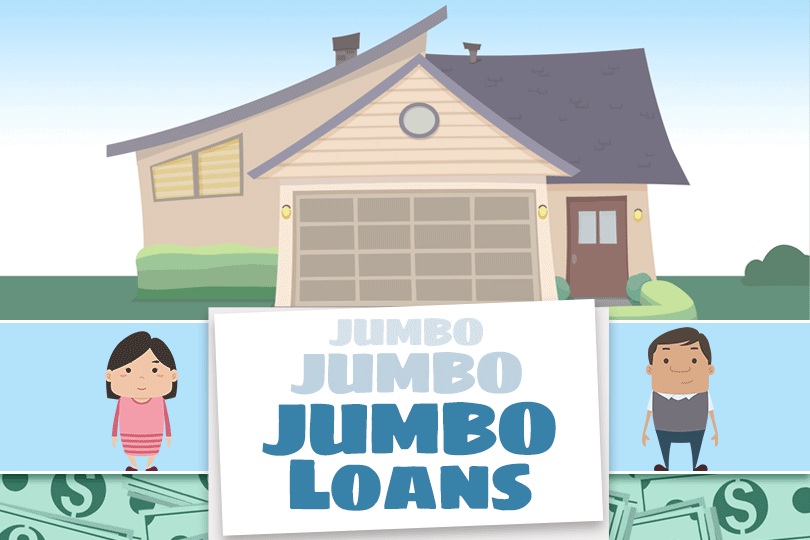What Makes a Jumbo Loan Jumbo?

The answer itself is simple--borrowers can apply for a loan that exceeds the limit, These are called jumbo mortgages and borrowers who qualify for them can get a home loan that’s higher than the county limit.
Loan Costs and FICO Scores
There’s a catch. Jumbo loans cost more. They involve a higher risk for the lender because the loans cannot be purchased or guaranteed by Fannie Mae or Freddie Mac on the secondary market.
Jumbo loans require higher qualifying FICO scores and lower debt-to-income ratios. You may find your participating lender requires a back-end ratio (the amount of your income taken up by your monthly financial obligations) of no greater than 43%.
Some sources report lenders with standards that allow a debt ratio of absolutely no higher than 45%.
FICO score requirements for FHA jumbo loans may start with scores in the upper 600s or in the 700 range at some financial institutions. Your experience may vary.
Down Payment Issues
In general you may find that participating FHA lenders are not willing to accept down payment assistance on a jumbo loan, and you should expect to pay all closing costs and down payment without help. Borrowers should know that non-traditional credit may not be acceptable to lenders when applying for jumbo mortgages.
Some borrowers who are new to the mortgage lending experience might mistakenly believe they can apply for a jumbo loan even though the sale price of the home doesn’t require one.
These borrowers may be interested in trying to collect the difference between the asking price of the home and the loan amount in cash at closing time.
Cash Back at Closing Time
Borrowers should know that this is not permitted. Cash back at closing time for FHA home loans (jumbo mortgages and conforming loans alike) is generally restricted to refunds of money paid up front for things that would ultimately be financed into the loan amount such as the Up-Front Mortgage Insurance Premium.
Your lender may ask you about cash reserves in association with your jumbo home loan application. Your jumbo loan approval process is much easier for the lender if you have cash reserves you can use as a compensating factor--borrowers who have enough cash on hand to cover a full year of mortgage loan payments will have an easier time getting a jumbo loan approved. Remember, no two lenders are exactly the same, and standards/requirements will vary from one to another.
------------------------------
Learn About the Path to Homeownership
Take the guesswork out of buying and owning a home. Once you know where you want to go, we'll get you there in 9 steps.
Step 1: How Much Can You Afford?
Step 2: Know Your Homebuyer Rights
Step 3: Basic Mortgage Terminology
Step 4: Shopping for a Mortgage
Step 5: Shopping for Your Home
Step 6: Making an Offer to the Seller
Step 7: Getting a Home Inspection
Step 8: Homeowner's Insurance
Step 9: What to Expect at Closing

Do you know what's on your credit report?
Learn what your score means.






